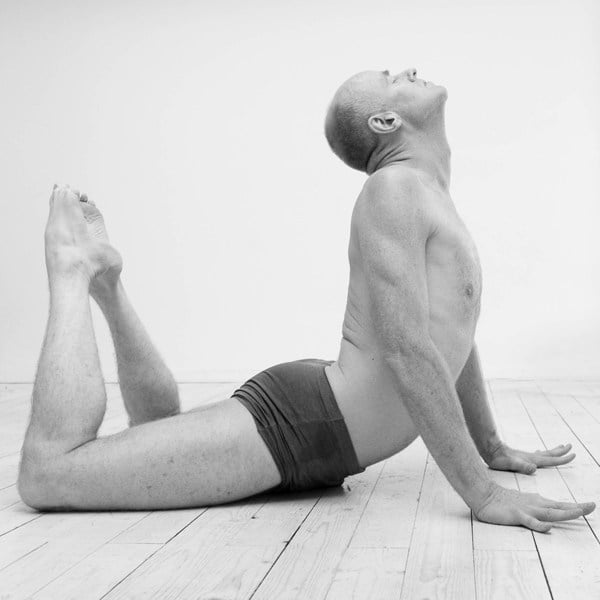10th February 2020 • Sticky Post
5 Benefits of Kundalini Yoga For Recovering Addicts

Yoga is a wonderful way to strengthen both the body and the mind, and it can provide skills and tools essential for succeeding in recovery. At Iboga Tree Healing House, we have made Kundalini Yoga an essential plank in our treatment regimen, and we have seen firsthand its power to transform lives and promote spiritual and emotional growth. It is a form of yoga that was first brought to the West by Yogi Bhajan, who believed that modern societies needed to learn to engage with and control their sensory systems. Yogi Bhajan felt that yoga and spirituality were necessary correctives for a society that was turning to drugs to expand consciousness and build spiritual connections. Kundalini yoga has helped millions to embrace a meaningful, healing connection between mind, body, and soul, and we’re committed to spreading its phenomenal healing and strengthening properties to those in recovery. Today we’ll be taking a look at 5 incredible benefits that Kundalini yoga can offer addicts in recovery.
1) Stress Control

Many of the techniques for controlling stress that you’ve been taught throughout your life actually originated with yoga. Controlled breathing, stretching, creating mental imagery, and focused physical movements are all techniques that have been used by yogis for over 5000 years. Multiple studies have found that yoga significantly reduces levels of cortisol in the body, a hormone associated with stress which is released when your “fight or flight” instinct takes over. Over time, elevated cortisol levels increase the risk of many significant health problems, including diabetes, obesity, heart disease, and dementia. Kundalini yoga can help you learn to regulate stress, and will lead to a sense of relaxation and better sleeping patterns. Because stress is often a powerful trigger for relapse, learning to manage it and lower your overall stress levels will greatly improve your chances of avoiding relapse when life gets tough.
2) Emotion Management

Addiction conditions the addict to respond to difficult emotions with self-medication. Odds are, when dealing with anger, sadness, frustration, disappointment or any other troubling emotion, your conditioned response will be to turn to a substance that will make your feelings go away. If you want to succeed in building a sober and healthy life for yourself, learning how to weather emotional storms and live with unpleasant emotions is a skill you must develop. Scientific studies have shown that yoga practice improves emotional regulation and self-compassion.
Many mental health practitioners liken our emotional states to the weather. They will shift from day to day and month to month. They can affect our interpersonal relationships, professional performance, and overall happiness. And our emotions manifest physically as well as mentally. Feeling your heart race, your stomach contort with butterflies, a blush rise on your cheeks, or your jaw clench are all physical manifestations of your emotional state.
One of the most important things that yoga teaches us is to balance, with both the body and the mind. Through its teachings, we learn to notice the sensations occurring in our bodies, and adjust our muscle actions to maintain a pose. This teaching is consciously and unconsciously applied to our mental state as well, as we learn to listen to our bodies and minds, and when we notice problems (such as tension, frustration, or exhaustion) make adjustments that keep us from toppling over onto the floor or experiencing emotional meltdowns.
3) Strengthening the Will

Many addicts cite a lack of willpower as one of the biggest obstacles to maintaining recovery. The good news is, yoga has been proven to make the “willpower systems” of the brain bigger, more efficient, and better-connected, according to Kelly McGonigal, a psychologist and yoga instructor who authored the book “The Willpower Instinct: How Self-Control Works, Why It Matters, and What You Can Do To Get More of It.” McGonigal states that “Yoga’s combination of slow, focused breathing, moderate physical effort and heart rate, and balanced autonomic nervous system, shifting the brain and body into this 'willpower' state. Yoga teaches you how to embody willpower.” While very few addicts can rely on willpower alone to overcome their struggles, it is inarguable that developing the ability to resist cravings and temptations will dramatically improve your chances of a successful recovery.
4) Reconnecting Body and Mind

If you’ve experienced years of addiction, you’ve likely been neglecting your physical health. Kundalini yoga will have a massive positive impact on your physical health, while also making you aware of the ways in which your physical deterioration has led to negative patterns of thought and a sense of hopelessness. Physical benefits regularly practicing yoga include releasing toxins from the lungs, expanding lung capacity, increasing physical endurance, boosting the immune system, and increasing the flow of oxygen to the brain (allowing for greater mental awareness and focus). When lost in addiction, it’s difficult to imagine waking up in the morning clear-headed, energized, and excited for the challenges of a new day. Yoga can make this your new reality!
Kundalini yoga is also based on connecting the pituitary gland, which regulates glands throughout the body, with the pineal gland, an organ associated with the mind and spirituality. Yogi Bhajan felt that the root of addiction was a pituitary gland which lost connection with the pineal, and began looking for stimulation from sources outside of the individual. He brought the teachings of Kundalini to the West with the aim of repairing that rift and allowing people to reconnect their minds, bodies, and souls.
5) Building Spirituality

While not everyone is looking for spirituality, it can be an immensely powerful force for breaking the cycle of addiction, and a “higher power” has helped millions of people through the recovery process. Kundalini yoga is a wonderful way to develop a connection to spiritual practice in your life, whether it be from a wholehearted embrace of Yogi Bhajan’s teachings, a peaceful time of meditation each day, or even just a greater sense of mindfulness in your day to day life. Gratitude, prayer, and a connection to the universe can be potential benefits of yoga practice, but even for those skeptical of spirituality, taking some time to tune out the outside world and listen to your body and mind is a worthwhile endeavour.
At Iboga Tree Healing House, we feel that Kundalini yoga is a wonderful complement to iboga therapy, giving people the tools to create positive and healthy lives during a period when they’re free from withdrawal symptoms and cravings. One wonderful resource for using yoga to improve body/mind connections is Tommy Rosen’s Recovery 2.0 program. Mr. Rosen has devoted his energy to exploring how yoga, holistic perspectives on health and diet, and elements of 12 Step programs can work in harmony to create a new and more complete recovery program. He has gleaned some fantastic insights into regaining health and happiness, and you can explore Recovery 2.0’s programs here. If you have any questions you’d like to ask us about putting the powerful combination of iboga and yoga to work in battling your addiction, don't hesitate to get in touch!


